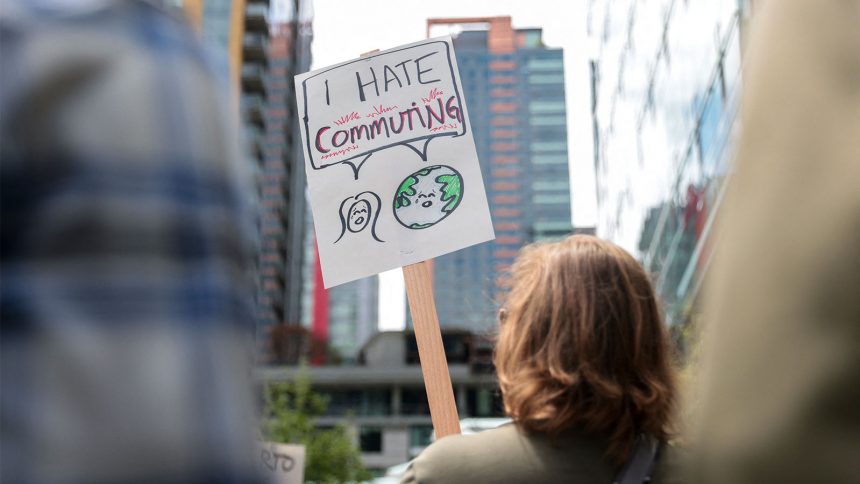This story was created in partnership between Grist and Fast Company. In 2020, the shift to remote work due to COVID-19 lockdowns made people reconsider their daily commute routines. The temporary decrease in travel resulted in a 7% cut in global carbon emissions, offering a glimmer of hope amidst a difficult year. Although emissions rose again in 2021 as activities resumed, office work has been forever changed. Remote work has become more common, with 28% of Americans now on a hybrid schedule and 13% working remotely full-time. Studies show that increasing remote work can significantly reduce carbon emissions and help companies achieve their sustainability goals. However, many businesses are not prioritizing climate change in their decisions about the future of office work. Commuter travel is a key contributor to a company’s carbon footprint, but it often goes unnoticed. Research indicates that transitioning to remote work can cut emissions significantly, highlighting the potential for a greener future post-pandemic. Despite the benefits of working in an office, the reliance on cars for commuting poses a challenge to reducing emissions. As companies push for in-person work, employees are being forced to commute, undermining efforts to address climate change. It’s time for businesses to reevaluate their return-to-office policies and prioritize sustainability in the post-pandemic world.






